Roasted peanuts have long been a beloved snack, enjoyed by people of all ages around the world. Their crunchy texture and rich, nutty flavor make them a popular choice for many. However, one concern that often arises when it comes to peanuts is their impact on cholesterol levels. In this article, we will explore the relationship between roasted peanuts and cholesterol, and how they can fit into a healthy diet. Cholesterol is a waxy, fat-like substance that is found in the cells of your body. It is important for building cell membranes and producing hormones. However, too much cholesterol in the blood can lead to a buildup in the arteries, increasing the risk of heart disease and stroke. There are two main types of cholesterol: low-density lipoprotein (LDL) and high-density lipoprotein (HDL).
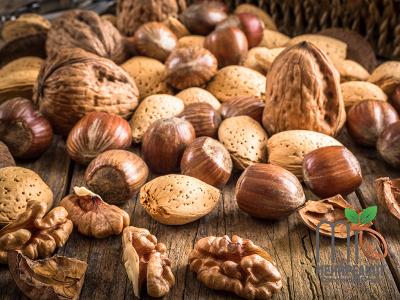
.
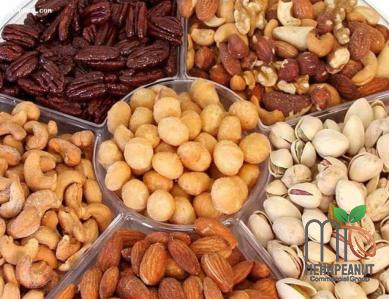 LDL cholesterol is often referred to as “bad” cholesterol, as high levels can lead to plaque buildup in the arteries, while HDL cholesterol is known as “good” cholesterol, as it helps remove LDL cholesterol from the bloodstream. When it comes to diet and cholesterol, it’s important to focus on the types of fats you consume. Saturated and trans fats can raise LDL cholesterol levels, while unsaturated fats can help lower LDL cholesterol and increase HDL cholesterol levels. Peanuts are a good source of unsaturated fats, specifically monounsaturated fats, which have been shown to have a positive impact on cholesterol levels. In fact, studies have shown that including peanuts in your diet can help reduce LDL cholesterol levels without affecting HDL cholesterol levels. Roasted peanuts are a particularly good option for those looking to manage their cholesterol levels. When peanuts are roasted, their nutrient content remains largely intact, making them a nutritious and convenient snack. Roasted peanuts are also flavorful and satisfying, making it easier to include them in your diet regularly. One of the reasons why roasted peanuts can be beneficial for cholesterol levels is their fiber content. Fiber helps lower cholesterol levels by binding to cholesterol in the digestive tract and removing it from the body. Peanuts are a good source of dietary fiber, which can help reduce LDL cholesterol levels over time. Including roasted peanuts as part of a high-fiber diet can be a delicious way to support heart health. In addition to their fiber content, roasted peanuts are also rich in other nutrients that can benefit your overall health. They are a good source of protein, which is essential for building and repairing tissues in the body. Protein can also help you feel full and satisfied, reducing the likelihood of overeating and promoting weight management. Roasted peanuts also provide important vitamins and minerals, such as vitamin E, magnesium, and potassium. It’s important to note that while roasted peanuts can be a healthy choice for most people, portion control is key.
LDL cholesterol is often referred to as “bad” cholesterol, as high levels can lead to plaque buildup in the arteries, while HDL cholesterol is known as “good” cholesterol, as it helps remove LDL cholesterol from the bloodstream. When it comes to diet and cholesterol, it’s important to focus on the types of fats you consume. Saturated and trans fats can raise LDL cholesterol levels, while unsaturated fats can help lower LDL cholesterol and increase HDL cholesterol levels. Peanuts are a good source of unsaturated fats, specifically monounsaturated fats, which have been shown to have a positive impact on cholesterol levels. In fact, studies have shown that including peanuts in your diet can help reduce LDL cholesterol levels without affecting HDL cholesterol levels. Roasted peanuts are a particularly good option for those looking to manage their cholesterol levels. When peanuts are roasted, their nutrient content remains largely intact, making them a nutritious and convenient snack. Roasted peanuts are also flavorful and satisfying, making it easier to include them in your diet regularly. One of the reasons why roasted peanuts can be beneficial for cholesterol levels is their fiber content. Fiber helps lower cholesterol levels by binding to cholesterol in the digestive tract and removing it from the body. Peanuts are a good source of dietary fiber, which can help reduce LDL cholesterol levels over time. Including roasted peanuts as part of a high-fiber diet can be a delicious way to support heart health. In addition to their fiber content, roasted peanuts are also rich in other nutrients that can benefit your overall health. They are a good source of protein, which is essential for building and repairing tissues in the body. Protein can also help you feel full and satisfied, reducing the likelihood of overeating and promoting weight management. Roasted peanuts also provide important vitamins and minerals, such as vitamin E, magnesium, and potassium. It’s important to note that while roasted peanuts can be a healthy choice for most people, portion control is key.
..
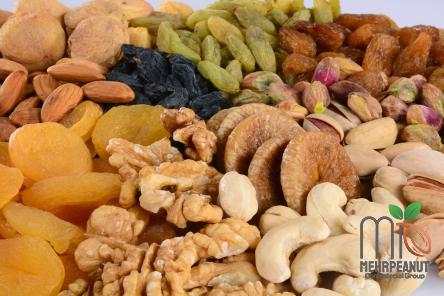 Peanuts are calorie-dense, so it’s easy to overconsume them if you’re not mindful of your portions. A serving size of roasted peanuts is typically around one ounce, which is roughly a handful. Including a moderate amount of roasted peanuts in your diet as part of a balanced eating plan can help support your cholesterol levels and overall health. In conclusion, roasted peanuts can be a delicious and nutritious addition to your diet, especially if you’re looking to support your cholesterol levels. Their high unsaturated fat content, fiber, and other nutrients make them a heart-healthy snack option. By enjoying roasted peanuts in moderation as part of a balanced diet, you can reap the benefits of their cholesterol-lowering properties while satisfying your taste buds. Next time you’re looking for a wholesome snack, consider reaching for a handful of satisfying and cholesterol-friendly roasted peanuts. Roasted peanuts are not only a tasty and satisfying snack, but they also offer a range of health benefits, including supporting heart health by helping to manage cholesterol levels. By including roasted peanuts in your diet, you can take advantage of their nutrient profile to promote overall well-being and maintain a healthy lifestyle. Beyond their impact on cholesterol, roasted peanuts have been associated with various other health benefits. Research has shown that peanuts may help reduce the risk of cardiovascular disease, thanks to their heart-healthy monounsaturated fats. These fats can help lower blood pressure and improve blood sugar levels, both of which are important factors in heart health. In addition to their cardiovascular benefits, peanuts have also been linked to weight management. Despite their calorie density, studies have shown that including peanuts in a balanced diet can actually help with weight loss or weight maintenance.
Peanuts are calorie-dense, so it’s easy to overconsume them if you’re not mindful of your portions. A serving size of roasted peanuts is typically around one ounce, which is roughly a handful. Including a moderate amount of roasted peanuts in your diet as part of a balanced eating plan can help support your cholesterol levels and overall health. In conclusion, roasted peanuts can be a delicious and nutritious addition to your diet, especially if you’re looking to support your cholesterol levels. Their high unsaturated fat content, fiber, and other nutrients make them a heart-healthy snack option. By enjoying roasted peanuts in moderation as part of a balanced diet, you can reap the benefits of their cholesterol-lowering properties while satisfying your taste buds. Next time you’re looking for a wholesome snack, consider reaching for a handful of satisfying and cholesterol-friendly roasted peanuts. Roasted peanuts are not only a tasty and satisfying snack, but they also offer a range of health benefits, including supporting heart health by helping to manage cholesterol levels. By including roasted peanuts in your diet, you can take advantage of their nutrient profile to promote overall well-being and maintain a healthy lifestyle. Beyond their impact on cholesterol, roasted peanuts have been associated with various other health benefits. Research has shown that peanuts may help reduce the risk of cardiovascular disease, thanks to their heart-healthy monounsaturated fats. These fats can help lower blood pressure and improve blood sugar levels, both of which are important factors in heart health. In addition to their cardiovascular benefits, peanuts have also been linked to weight management. Despite their calorie density, studies have shown that including peanuts in a balanced diet can actually help with weight loss or weight maintenance.
…
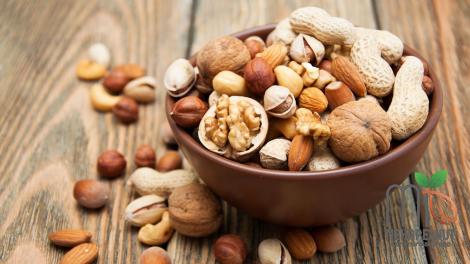 The combination of protein, fiber, and healthy fats in peanuts can help you feel full and satisfied, reducing the likelihood of overeating and supporting a healthy weight. Furthermore, peanuts are a good source of antioxidants, including resveratrol, which has been associated with various health benefits, such as reducing inflammation and promoting healthy aging. Antioxidants help protect the body from oxidative stress and free radical damage, which can contribute to chronic diseases and aging. Incorporating roasted peanuts into your diet doesn’t have to be limited to snacking. There are many creative ways to enjoy peanuts as part of your meals and recipes. You can add roasted peanuts to salads for a crunchy texture and nutty flavor, sprinkle them on top of oatmeal or yogurt for a nutritious boost, or even use them as a coating for chicken or fish dishes for a flavorful twist. When purchasing roasted peanuts, opt for varieties that are unsalted or lightly salted to minimize sodium intake. Excessive salt consumption can contribute to high blood pressure and other health issues. Additionally, choose roasted peanuts that are free from added oils or unnecessary additives to ensure you’re getting the most nutritional benefits. If you have a nut allergy or sensitivity, it’s important to consult with a healthcare provider before introducing peanuts into your diet. While peanuts are technically legumes and not true nuts, they can still trigger allergic reactions in some individuals. Always read food labels and be cautious when consuming peanuts or peanut products if you have a known allergy. In conclusion, roasted peanuts can be a flavorful and nutritious addition to your diet, especially when it comes to managing cholesterol levels and supporting heart health. Their combination of unsaturated fats, fiber, protein, and essential nutrients makes them a valuable ingredient for promoting overall well-being. By enjoying roasted peanuts in moderation and incorporating them into a balanced diet, you can take advantage of their health benefits while savoring their delicious taste. So go ahead and indulge in a handful of cholesterol-friendly roasted peanuts for a guilt-free snack that nourishes both your body and your taste buds.
The combination of protein, fiber, and healthy fats in peanuts can help you feel full and satisfied, reducing the likelihood of overeating and supporting a healthy weight. Furthermore, peanuts are a good source of antioxidants, including resveratrol, which has been associated with various health benefits, such as reducing inflammation and promoting healthy aging. Antioxidants help protect the body from oxidative stress and free radical damage, which can contribute to chronic diseases and aging. Incorporating roasted peanuts into your diet doesn’t have to be limited to snacking. There are many creative ways to enjoy peanuts as part of your meals and recipes. You can add roasted peanuts to salads for a crunchy texture and nutty flavor, sprinkle them on top of oatmeal or yogurt for a nutritious boost, or even use them as a coating for chicken or fish dishes for a flavorful twist. When purchasing roasted peanuts, opt for varieties that are unsalted or lightly salted to minimize sodium intake. Excessive salt consumption can contribute to high blood pressure and other health issues. Additionally, choose roasted peanuts that are free from added oils or unnecessary additives to ensure you’re getting the most nutritional benefits. If you have a nut allergy or sensitivity, it’s important to consult with a healthcare provider before introducing peanuts into your diet. While peanuts are technically legumes and not true nuts, they can still trigger allergic reactions in some individuals. Always read food labels and be cautious when consuming peanuts or peanut products if you have a known allergy. In conclusion, roasted peanuts can be a flavorful and nutritious addition to your diet, especially when it comes to managing cholesterol levels and supporting heart health. Their combination of unsaturated fats, fiber, protein, and essential nutrients makes them a valuable ingredient for promoting overall well-being. By enjoying roasted peanuts in moderation and incorporating them into a balanced diet, you can take advantage of their health benefits while savoring their delicious taste. So go ahead and indulge in a handful of cholesterol-friendly roasted peanuts for a guilt-free snack that nourishes both your body and your taste buds.
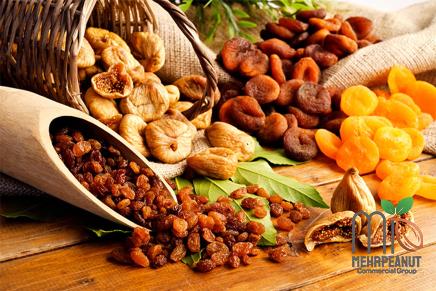
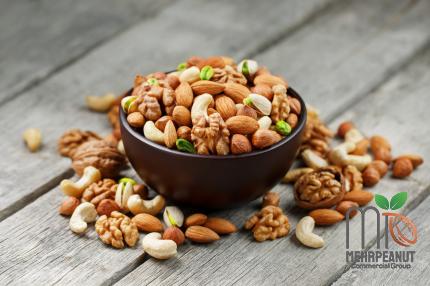
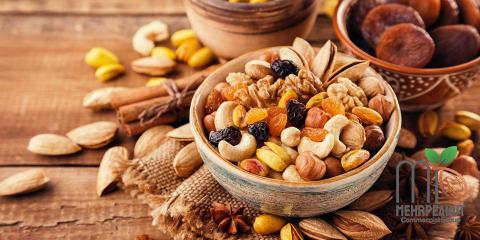
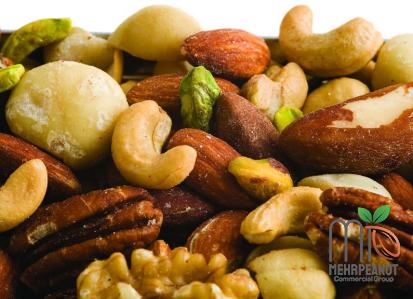
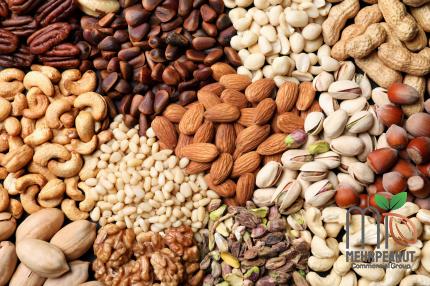
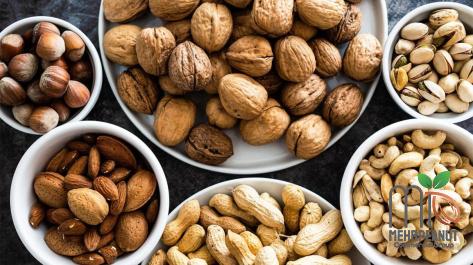
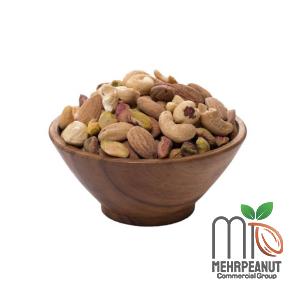
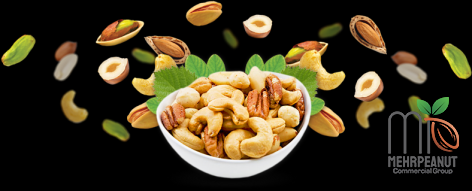
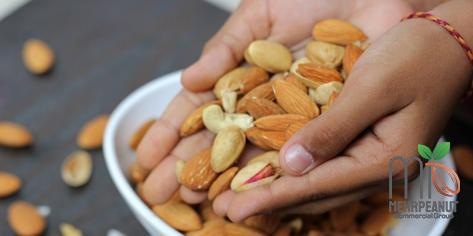
Your comment submitted.